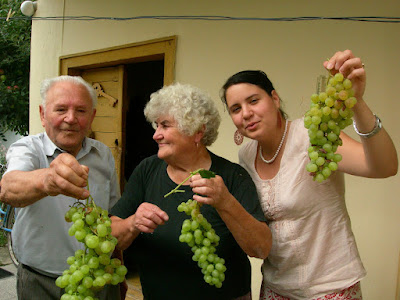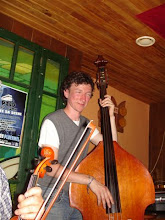
the utility futility of this blog is to travel without and within words, as you wish.
A wish for greater news, more hearted than rooted, more dual than prime-time.
Just because I cannot help it.
I believe it was intuition to feel the warmth of this unique September heatwave. It was history in paper and in sight. Through the glass window-pain of my old neighbour's read, I confused the sun for the past, as memory was so much present, presence.
It was all around us in the flower dress of her grandmother, in the powerful darkness of the night-train's yellow, in the encounter with her high-school friend. Or simply without.
It was presence and absurdity in one on my bottle's cover (Luis Figo, Portuguese football striker who recently came back from comfortable Quatar now figures on the advertising for the szentkirály Hungarian water), in his son's "Brasil" tee-shirt, in my own o'neill bag carrying a bunch of great Hungarian-made cds...
A wish is better than novelty in my view, as it is not taken for granted, nevertheless we generally wish for both.
Alas for air conditioning and the wish for ecological security, alas for the heatwave. Hungarian is not so much a country that thinks in the future as one that wishes for the future; a heavy burden but this present wish.
so my neighbour reads on his "national freedom" (népszabadság) for all the heat within, without; here and there.































